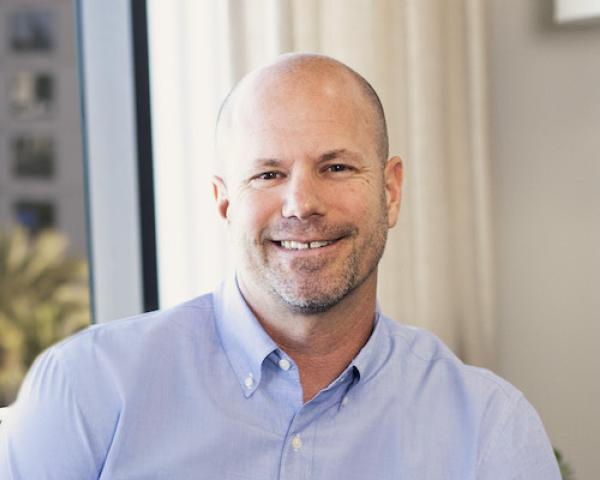Employee health benefits are in the midst of a transformation because traditional benefits methods fall short of meeting the diverse needs of today's workforce.
One solution is Individual Coverage Health Reimbursement Arrangements (ICHRAs). While many benefits consultants still believe they are tailored for small employers, the reality is the opposite. Mid-market and large companies can reap significant benefits from embracing ICHRAs, leveraging them to meet business goals, care for a diverse workforce and attract top talent.
Controlling Rising Health Plan Costs for Large Companies
It's not news that health insurance costs have been rising steeply, burdening businesses of all sizes. While Mercer’s annual employee benefits survey found that average rates increased by 5.2% from 2022 to 2023, many companies are seeing rate increases of 20% or more. In fact, according to SureCo’s 2024 State of Employee Health Benefits, benefits consultants said over a third of their book of business needs an alternative solution to traditional, fully insured coverage options.
Our research, which was conducted by Censuswide, an independent market research firm, found that most companies (85%) have changed healthcare carriers or plan design at least once over the past five years—but the numbers differ dramatically by company size. For example, 55% of companies with 150 to 500 employees had changed plans two or more times in the past five years, which increased to 67% for companies with 1,001 to 2,000 employees and 77% for companies with 2,001 to 2,500 employees. The larger the company, the more often they bounce around between insurance carriers. This is usually due to cost concerns from unexpected rate increase.
Changing to an ICHRA model generates substantial savings for large employers, with some experiencing savings of more than 60%. On average, benefits consultants who have moved their clients to an ICHRA model saw 16% savings.
The appeal of ICHRAs lies in their ability to provide employers with greater control over healthcare expenditures. By breaking away from traditional group plans (i.e., pulling the ripcord), companies can establish a fixed budget for health benefits, shielding them from unpredictable premium increases.
See also: Insurers' Social Inflation Problem
Caring for a Diverse Workforce
Large companies often operate across multiple states and serve employees from various backgrounds and demographics. Catering to each individual's unique healthcare needs can be challenging. Traditional group plans, typically offering limited options, fail to adequately address employees' diverse healthcare preferences.
ICHRAs offer a versatile solution for these businesses. Unlike rigid group plans, ICHRAs empower employees to select individual coverage that best suits their specific needs and circumstances from all available options on the individual market. This flexibility is especially beneficial for companies with dispersed workforces spanning different regions and life stages.
The flexibility of ICHRAs also enables employers to tailor contributions to different employee classes, ensuring that benefits align with their workforce’s needs. When companies offer an ICHRA with SureCo, their employees select an average of 32 unique plans, with some teams enrolling in as many as 160. Whether it's offering specialized plans for remote workers, part-time employees or specific age groups, ICHRAs provide the flexibility needed to ensure comprehensive healthcare coverage for all.
See also: How to Tackle the Long-Term-Care Crisis
ICHRAs Help Large Businesses Attract and Retain Top Talent
Offering high-quality health benefits is essential for any business wanting to attract and retain top talent. Employees increasingly prioritize comprehensive healthcare coverage when evaluating job opportunities. They want more autonomy and options in the plan selection process, and they’re willing to change jobs to get it.
According to our survey, 80% of employees said they would prefer to select their own plan from all available options vs. the few options their company currently offers them. 74% said they feel confident in their ability to select their own plan. For large companies seeking to stand out as employers of choice, embracing innovative benefits solutions like ICHRAs can make a difference.
So while ICHRAs may have been associated with small employers in the past, the model’s benefits extend far beyond that demographic. By leveraging ICHRAs, large businesses can achieve cost savings, cater to the unique needs of their diverse labor force and enhance their ability to attract and retain top talent in a competitive market. As the paradigm of employee health benefits continues to evolve, embracing innovative solutions like ICHRAs will be crucial for companies that are looking to stay ahead of the curve and meet the evolving needs of their workforce.
Methodology:
Responses were collected from a nationally representative sample of 1,637 HR and finance professionals, employees and benefits consultants across all industries. All employees and employers were from U.S.-based companies with 150 to 2,500 employees. Responses were collected between Jan. 3 and Jan. 11, 2024. Censuswide abides by and employs members of the Market Research Society, which is based on the ESOMAR principles.






